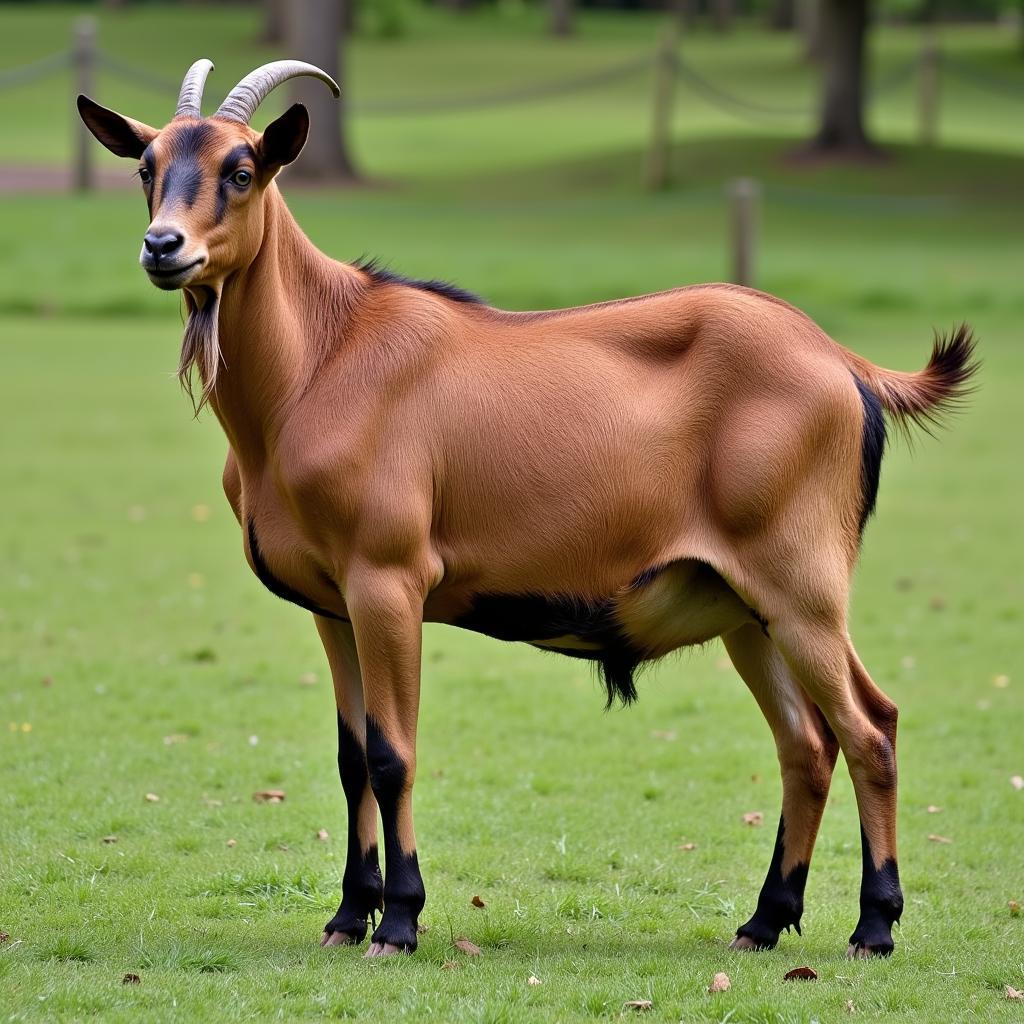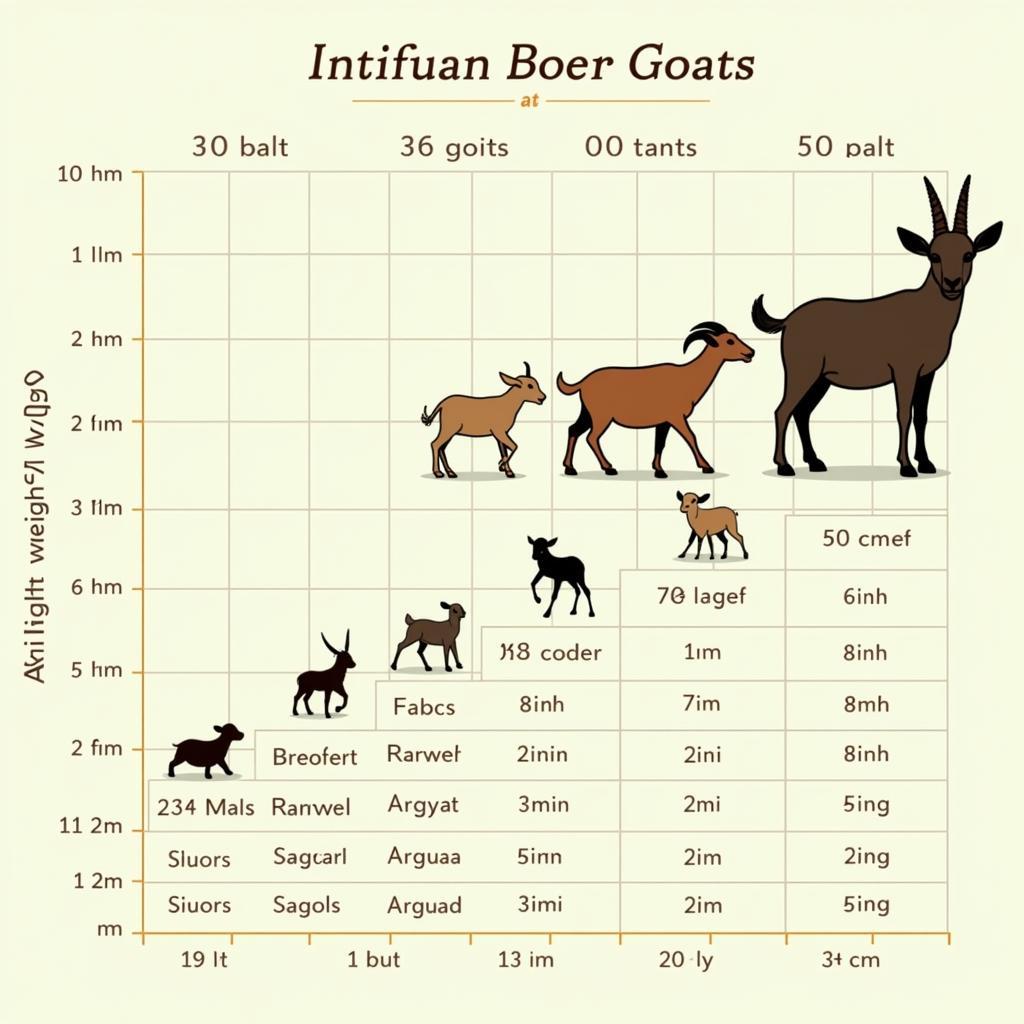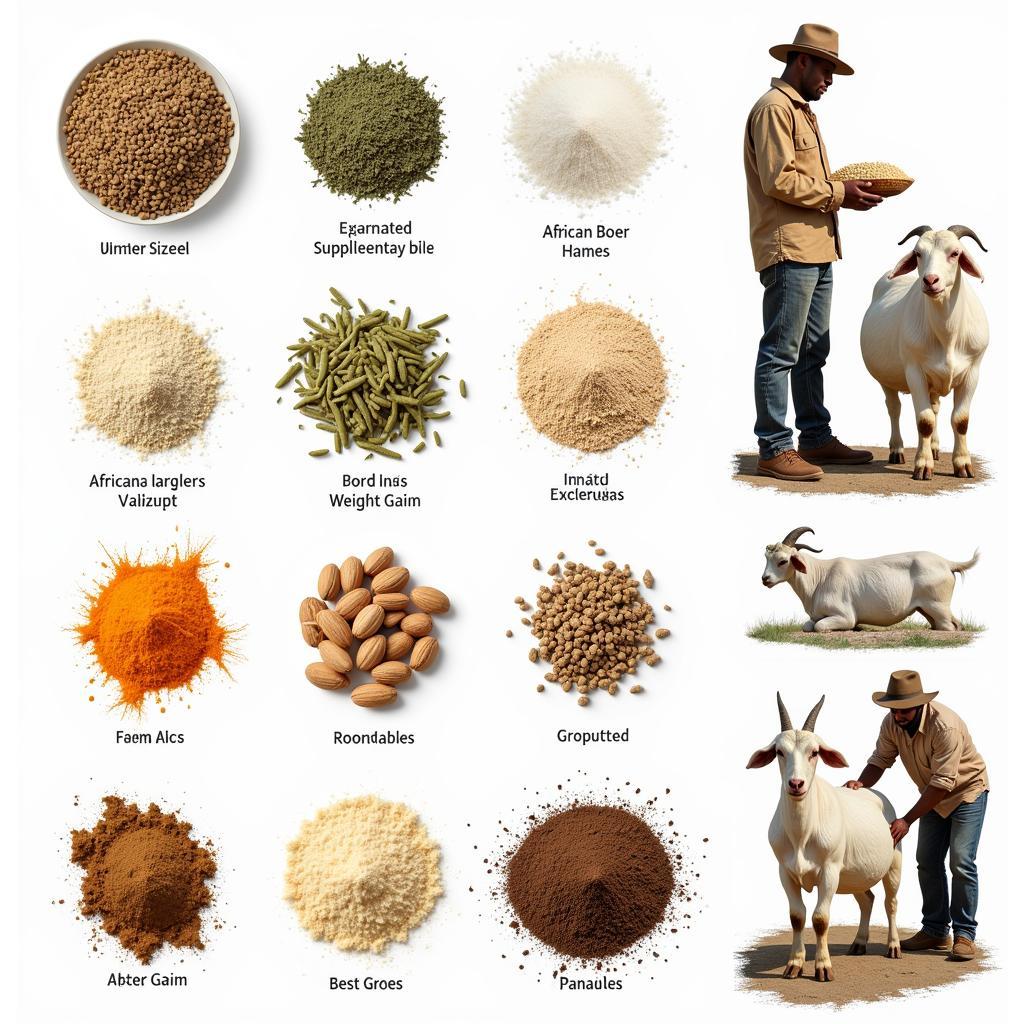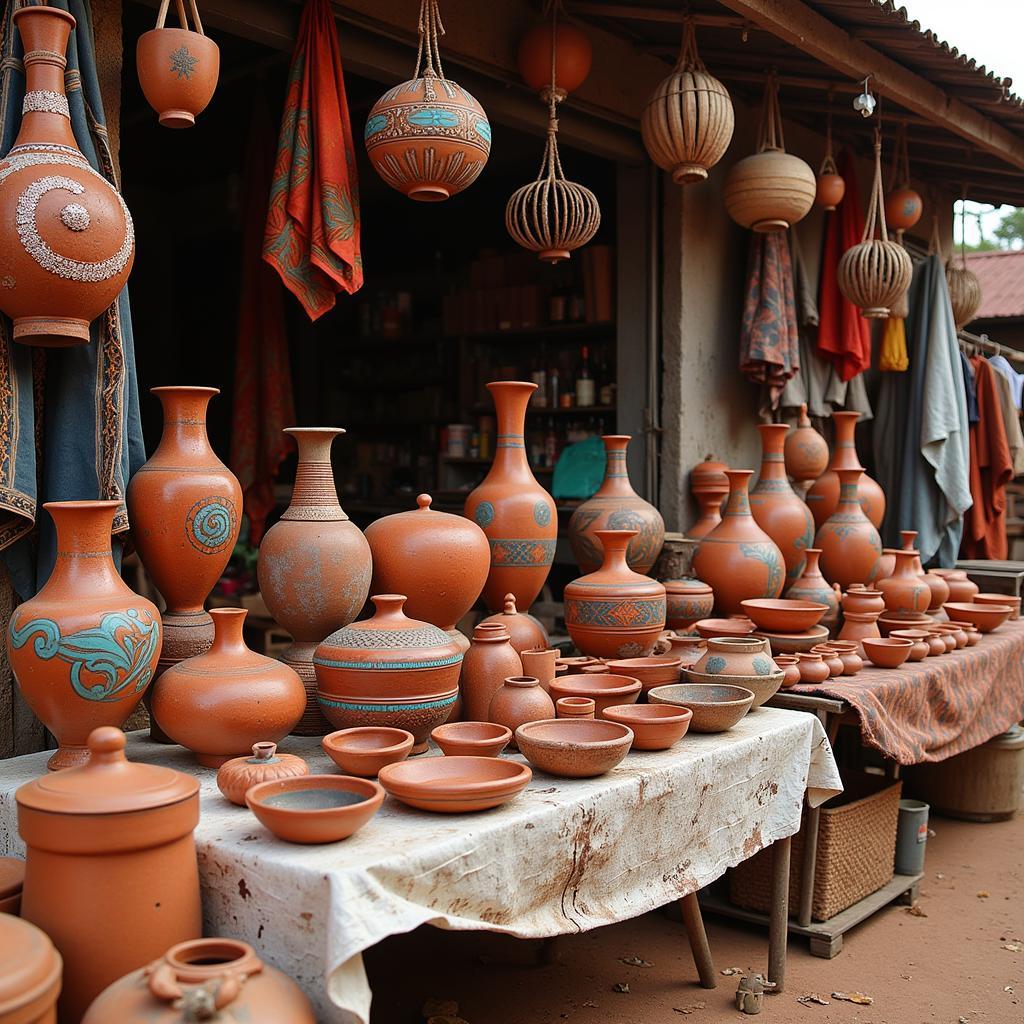African Boer Goat Weight: A Comprehensive Guide
African Boer Goat Weight is a crucial factor for farmers and breeders. Understanding the ideal weight ranges, growth patterns, and factors influencing weight gain can significantly impact farm profitability and overall success. This guide dives deep into the specifics of Boer goat weight, providing valuable insights for both seasoned professionals and newcomers to goat farming.
Knowing the expected weight of a Boer goat at different ages helps farmers monitor their herd’s health and make informed decisions about feeding, breeding, and overall management. Let’s explore the various factors influencing weight and learn how to optimize your goats’ growth potential. For those interested in market pricing and farm locations, you can find more information about the African Boer goat market in India.
Factors Affecting African Boer Goat Weight
Several key factors contribute to the overall weight of an African Boer goat. Understanding these factors allows farmers to create an optimal environment for their goats to thrive. These factors include genetics, nutrition, health, and management practices.
- Genetics: Just like in humans, genetics play a significant role in determining a Boer goat’s potential size and weight. Some bloodlines are naturally larger and heavier than others. Careful selection of breeding stock is essential for achieving desired weight goals.
- Nutrition: A balanced and nutritious diet is critical for healthy growth and weight gain. Providing adequate forage, supplemented with grains and minerals, is crucial, especially during periods of rapid growth such as weaning and pregnancy.
- Health: Diseases and parasites can significantly impact a goat’s ability to gain weight. Regular health checks, vaccinations, and parasite control are essential for maintaining optimal health and weight.
- Management Practices: Proper management practices, such as providing adequate shelter, clean water, and a stress-free environment, contribute to overall well-being and healthy weight gain.
 Healthy African Boer Goat Weight
Healthy African Boer Goat Weight
Understanding African Boer Goat Growth and Weight Ranges
African Boer goats are known for their fast growth rates. Monitoring weight gain throughout a goat’s life cycle is essential for assessing its development and identifying potential problems early on. Here’s a general overview of expected weight ranges at different ages:
- Birth: Boer goat kids typically weigh between 6 and 9 pounds at birth.
- Weaning (3-4 months): By weaning age, kids should weigh around 40 to 60 pounds.
- 6 months: At six months, a Boer goat should weigh approximately 60 to 80 pounds.
- 1 year: A year-old Boer goat can weigh anywhere between 80 to 120 pounds.
- Mature (2+ years): Mature Boer does typically weigh between 150 and 200 pounds, while bucks can weigh between 200 and 300 pounds, or even more in some cases.
These are just general guidelines; individual weights can vary depending on the factors mentioned earlier. It’s always important to consult with a veterinarian or experienced goat breeder for specific advice tailored to your region and herd.
 African Boer Goat Weight Chart
African Boer Goat Weight Chart
Maximizing African Boer Goat Weight for Profitability
Maximizing weight gain in Boer goats can significantly impact profitability. Heavier goats command higher prices in the market, especially for meat production. For detailed information on pricing, you can refer to resources like African Boer goat price in Rajasthan. Here are some tips for maximizing your goats’ weight:
- Provide high-quality forage: Access to nutrient-rich pasture or hay is essential for optimal growth.
- Supplement with grains and minerals: Provide a balanced feed ration that meets the goat’s nutritional needs at different life stages. Consider consulting a nutritionist to develop a customized feeding plan.
- Implement a strict parasite control program: Regular deworming and other parasite control measures are crucial for maintaining healthy weight gain.
- Ensure access to clean, fresh water: Water is essential for all bodily functions, including growth and development.
- Provide adequate shelter: A comfortable and stress-free environment promotes healthy growth. Protection from extreme weather conditions is crucial.
You can also explore resources like the African Boer goat farm in Nashik to gain insights into successful farming practices.
 Optimal Feeding Strategies for African Boer Goats
Optimal Feeding Strategies for African Boer Goats
Conclusion
African Boer goat weight is a complex topic influenced by various factors. By understanding these factors and implementing best practices in nutrition, health management, and overall care, farmers can optimize their goats’ growth potential and maximize their profitability. Remember that regular monitoring and adjustments to your management strategies are key to achieving long-term success. Keeping track of the African Boer goat weight allows farmers to make informed decisions, ensuring a healthy and productive herd. Knowing the African goer goats price in India is also crucial for market awareness.
FAQ
- What is the average weight of a mature African Boer goat? Mature Boer does typically weigh between 150 and 200 pounds, while bucks can weigh between 200 and 300 pounds.
- How fast do Boer goats grow? Boer goats are known for their rapid growth rates, reaching market weight sooner than many other goat breeds.
- What are the key factors affecting Boer goat weight? Genetics, nutrition, health, and management practices are the primary factors influencing weight.
- How can I maximize my Boer goats’ weight gain? Providing high-quality forage, supplemental feed, parasite control, and a stress-free environment are essential for maximizing weight gain.
- What is the ideal weight for a Boer goat kid at weaning? Boer goat kids should weigh around 40 to 60 pounds at weaning age (3-4 months).
- Where can I find more information about African Boer goat farming? You can find resources like African bor gots for more detailed information.
- What is the importance of monitoring African Boer goat weight? Monitoring weight allows farmers to assess growth, identify potential health problems, and make informed decisions about management practices.
Scenarios
- Scenario 1: A farmer notices that their Boer goat kids are not gaining weight as expected. They should review their feeding practices, check for parasites, and consult a veterinarian if necessary.
- Scenario 2: A breeder wants to improve the overall weight of their Boer goat herd. They should focus on selecting breeding stock from heavier bloodlines and implement optimal nutrition and management practices.
Further Exploration
For more information, explore related topics such as Boer goat breeding, nutrition guidelines, and disease management.
When you need assistance, please contact us at Phone Number: +255768904061, Email: [email protected] or visit us at Mbarali DC Mawindi, Kangaga, Tanzania. We have a 24/7 customer support team.
